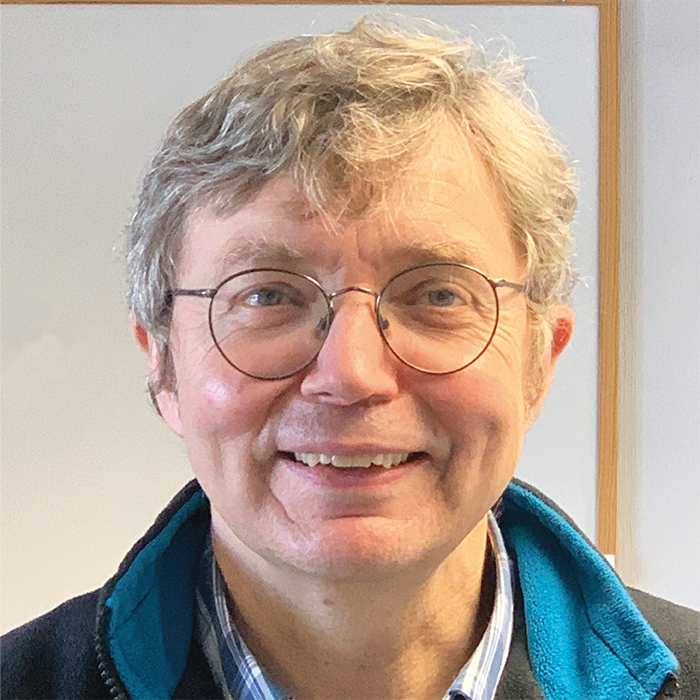It’s been a long week. The troubles of the analytical laboratory weigh heavy on your shoulders as you start your walk along the riverbank. But it’s a beautiful day and Spring colors surround you as you continue your gentle stroll. The bleakness of winter has been replaced with bright shades of green – leaves full of chlorophyll ready for the Summer. The footpath runs by a fast-flowing river, the debris of a recent storm is being hurried along – only slowing when it hits the embankments and then speeding up as it moves in the center. You stare at the spring scenery and your mind starts to wander back to the day-to-day activities in the laboratory and specifically onto the week’s chromatography challenges…

You remember that your chromatographic assay has fallen over. The analysis should be working, the method had been running for years. Why now? What changed overnight to cause the issue? What troubleshooting approach should you take? The team has already spent considerable effort trying to identify the source of the issue but, despite all the effort, they have still not found a solution.
Troubleshooting within the department had been a major issue – at least until recently, when some members of the team had been sent on a training course. The course had identified that there was a lack of fundamental understanding of the chromatographic process, such as the impact of flow rate or pH on the retention time and peak shape. Worryingly, most of the people attending the course were deemed to be experts. They had been passing on their skills to the next generation, but it was evident that they’d begun to forget what they had been taught. The instructor had also put some focus on method development and identifying when a method is inherently stable or not.
Perhaps your assay is not so stable after all. What if it was caused by a lack of buffering capacity in the mobile phase. Could changing the concentration of the buffer have such an impact on the retention time?
Gradually your mind starts to formulate a plan and you begin to feel happier about the assay. But you then begin to ponder other possibilities; could the assay be improved even further? In particular, you consider new technology that would increase the chromatographic efficiency as well as improving the selectivity – and without a detrimental impact in terms of the analysis time or the bank balance. A true win-win!
As your eyes begin to focus back into the real world, you see your destination – a conference, a meeting of like-minded people with a love of chromatography and a passion to make it better. The name of the conference is ISC – or International Symposium on Chromatography.
Which city does your riverbank belong to? ISC 2024 will be held in the UK for the first time since the start of the century, with the riverbanks of the great Mersey welcoming visitors to the historical city of Liverpool. The conference venue is actually on the banks of Liverpool’s world heritage waterfront – a gateway to one of the world’s most famous ports. It is part of Europe’s only purpose-built interconnected arena, convention, and exhibition center, situated alongside on-site hotels. The ultra-modern surroundings ensure maximum comfort and also fully integrated technology to ensure that no lecture is missed. It is truly an awe-inspiring place, where the imagination can truly be allowed to have free reign.
The organization for Liverpool is well under way and it is going to be an incredible event. As alluded to by the title of this article, the theme of the event is “imagine a world of chromatography,” with the premise being that chromatography underpins many of the world’s sciences. Speakers from the fields of art restoration, environmental monitoring, and artificial intelligence, as well as one of the founding fathers of Green Chemistry and a leading industrial figure, will all come together to tell us how the world has been improved by the use of chromatography within their chosen fields. These leading lights will be supported by yet more presenters who will focus on the latest developments – from the theoretical to the practical, including the launch of new technology to support separation scientists.
The event starts on Saturday, October 5th, with a one-day course for beginners to the field of separation science. Sunday will comprise of three short courses and then the main program begins in the evening, with a series of awards and plenary lectures. In addition to the lectures and poster sessions, the event will also have the “tubes” and the “slams” that have become so popular in recent times. However, the organizing committee are looking to arrange other activities throughout the week that will ensure that all delegates will get the best out of the conference. Indeed, it isn’t just the academic program that is looking attractive… The main conference dinner will be held in one of the world’s largest cathedrals, with music from a local band, ensuring that a night of dancing awaits the more enthusiastic delegates.
One clear aim of the meeting is to support the next generation of chromatographers and to this end there are a range of grants available for budding separation scientists to apply for, with full details being updated on a regular basis on the website: www.isc2024.org. And obviously make sure that your calendar is clear from October 5th through to October 10th so you can attend the meeting.
When one imagines a world of chromatography, what may come to mind is a disparate world – one that is separated into many components. However, as all scientists know – as all chromatographers know – science is not separated and knows no boundaries. We are one community, living in harmony. We dream of a better world where we are truly united in our love and application of chromatography.
Credit: Image sourced from Pexels.com (Edited)




